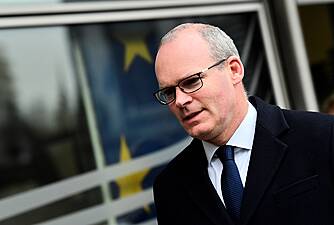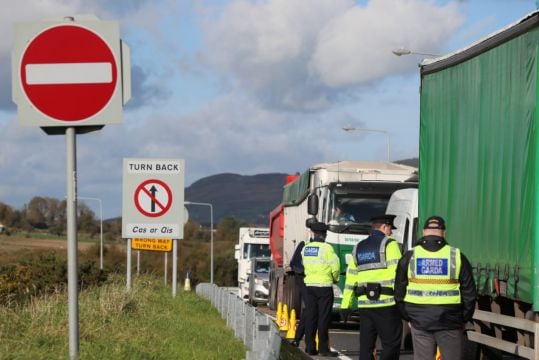Northern Ireland’s Justice Minister has urged that a Brexit deal be agreed, warning of a potential “organised crime bonanza”.
Naomi Long described “huge uncertainty” for justice agencies with just weeks to go until the end of the transition period.
She singled out extradition as a particular area of concern, telling a UK parliament committee that the justice system could be left using 1950s mechanisms for extradition.
“We can’t combat 2020 crime and security threats using 1950 tools,” she said.
The Northern Ireland Affairs Committee previously heard that instead of six to eight weeks under the European Arrest Warrant, extradition could take up to two years.
Giving evidence to the committee on Wednesday, Ms Long said it is “imperative” that the UK and EU agree a future security partnership.
🗣️We're hearing evidence from Northern Ireland Justice Minister, @naomi_long MLA, on the implications of Brexit for tackling cross-border criminality.
📺Watch live: https://t.co/WPkVYxQtCK pic.twitter.com/Icm9T4z58R— Northern Ireland Affairs Committee (@CommonsNIAC) November 18, 2020
“However even if they do, it will not have the same breadth of measures to which we currently have access, the outcome will be sub-optimal unless we have the same access to current IT systems, legal instruments and EU agencies that we currently enjoy,” she told MPs.
“We cannot really afford to lose those key EU measures, if we – tragically in my view – exit without a deal then it is imperative that bilateral arrangements are put in place to bridge any gaps in capability.
“There is huge uncertainty for justice partners, there are only weeks to go until the end of the transition period yet we do not know what beyond that will look like.
“Planning can only go so far in that context. We do now urgently need detail on the outcome of the negotiations and clarity, in particular as to how the Northern Ireland Protocol will be implemented in practice to try to embed a culture of compliance and a culture of lawfulness.”
Ms Long said anything less than a good security partnership between the UK and EU, or a substantial bilateral agreement between the UK and Ireland, would be a “failure of policy making and negotiation”.
Ms Long also raised the potential for unrest if people are “politically disturbed” by the outcomes of Brexit, as well as potential for the expansion of black market activity in a scenario of different tariffs on either side of the border.
“It isn’t just the future security partnership that affects policing and justice in Northern Ireland, it is also the economic decisions that are made because if we have increased differentials in terms of tariffs and other issues around the border, then we will end up with a potential bonanza for organised crime,” she said.
DUP MP Ian Paisley queried if Ms Long’s department had a “can-do” attitude towards Brexit planning.
She responded saying it is for the UK government to have a can-do attitude in the negotiations with the EU.
“If we’re not able to data share, we are not able to do our jobs on a cross-Border basis. Optimism will take you so far but unfortunately you can’t cash cheques on that basis… I am not going to try to gloss over the difficulties that this will create, the challenges it poses to law enforcement because that is not my job, my job is to respond to the reality.”
DUP MP Gregory Campbell asked Ms Long if she has reached out to US president-elect Joe Biden, and suggested she advise the US consul that the new administration “treads very carefully” around Northern Ireland politics.
He referenced a photograph of Mr Biden with former Sinn Féin president Gerry Adams and veteran republican Rita O’Hare which he said “a lot of people would have taken deep offence” at.
Ms Long said there is “nothing new” in US presidents being pictured with high-profile Irish republicans and others, adding there are photographs of president Donald Trump at a fundraiser for Sinn Féin in the US.

She added that she has not yet been in touch with the president-elect, but said she would “always caution any politicians from outside the jurisdiction to tread lightly around issues that are highly political”.
“I generally find the US consul general to be someone who is very supportive of the peace process, very supportive of the rule of law and very respectful of some of the sensitivities of our past,” she said.
The session was the third of the committee’s inquiry into cross-Border co-operation on policing, security and criminal justice after Brexit.







